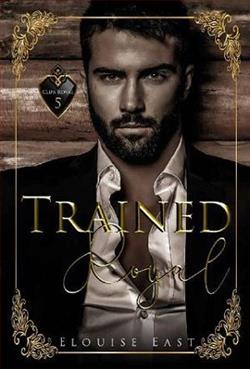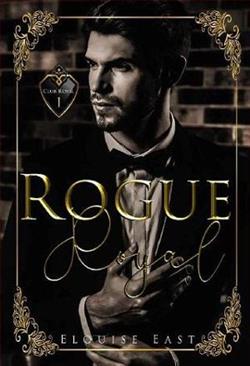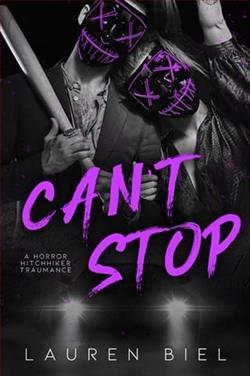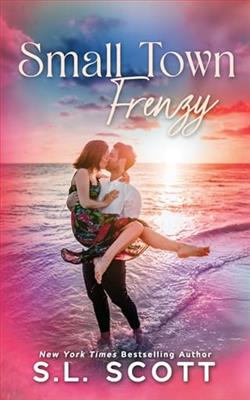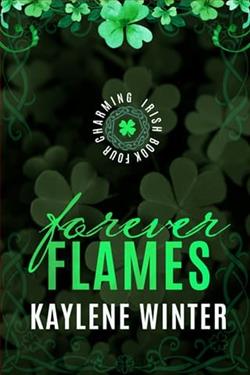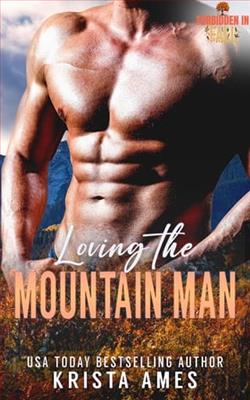Page 58 of The Furies
“Until recently, nobody had been hurt,” I said, “except a squirrel, and that might already have been dead. I hoped I might be able to settle this without involving the authorities, but now I think Kepler may have killed a coin dealer in New Hampshire, and he could just be getting started. If I can’t convince Raum to come in of his own volition, I’ll have to talk to the cops today and let them decide the next move. In the meantime, you’d better hold on to that video footage. It could prove useful.”
I left Dave and returned to my car, still without any sign of contact from Raum. I had believed that he cared to some degree for the Sisters Strange. I might have been foolish to do so, but a man gets tired of assuming the worst of people, no matter how intent they may be on proving him right. So either Raum didn’t care, and never really had, or he was past caring, because there was a difference between not wanting to communicate and not being able to communicate. If Kepler had already found Raum, no one was going to be hearing from either man again. But until I was sure, I’d keep hunting for both.
* * *
I SPENT THE NEXT few hours making phone calls to Raum’s former associates, including the two boneheads who had taken a swim in the Fore at the Fulcis’ insistence all those years ago, and knocking on the doors of the ones who struck me as most likely to have remained in contact with him. Apart from pointing me in the direction of the Braycott Arms, none of them could tell me where Raum might be, and I didn’t suspect them of lying. Again and again I was informed that Raum was an altered beast since his release from prison. It was in his eyes, his voice, his carriage. Whatever residual appeal his company might have possessed, even for the incurably felonious, was entirely gone. Raum’s old acquaintances were minor grifters and thugs, just as he used to be. They might have been wary of him, but they had not feared him. Now, I learned, they did.
The most curious testimony came from a man named Tessell Forde, who was the kind of criminal more familiar with county jails than state prisons, and never felt comfortable behind a wheel until he’d first had a couple of drinks to steady his hands. Tessell lived in a crappy single room on Mellen Street in Parkside, an area of Portland that locals regarded as rough, but only because most everywhere else in the city wasn’t. He’d run with Raum back in the day, but now he didn’t run with anyone at all, and could walk only with the aid of a stick. Tessell might have passed for seventy, was understood to be sixty, but was, in fact, barely fifty. He subsisted on welfare and the proceeds of petty delinquency, and had never known even modest prosperity. Still, Tessell retained a curious sense of optimism despite the fact that life woke up every morning, yawned widely, and gave him a good kick in the ass before getting on with its day.
“Raum’s sick,” said Tessell, as he rolled a cigarette. An oxygen tank stood nearby, the connected mask dangling over the end of a bedpost. I didn’t hear the hiss of gas, which was some small relief.
“What kind of sick?”
“He got him a defilement down in Jersey, body and mind both.”
Tessell licked the paper and stuck one end of the roll-up in his mouth. It looked even slimmer than the match he used to light it, his pack of rolling tobacco containing little more than dust and memories.
“When did you last see him?” I said.
“Three or four days ago, first time over by the Braycott. I called to him, but he didn’t recognize me.” His hurt was obvious. “Me and Raum, we’ve known each other for many years, but he stared at me like I was a stranger. His eyes were all feverish, and even his voice weren’t his own. If I didn’t know better, I’d have said he was another man, and I’d been mistaken in my initial cognizance of him.”
Tessell’s father was a defrocked Catholic priest from somewhere up in Piscataquis County, and a quantity of the old man’s loquacity and love of oratory had rubbed off on his son. A crucifix hung on the wall above Tessell’s bed, the paint on Christ’s feet rubbed away by the actions of beseeching fingers. I speculated on what Tessell might have been praying for. Whatever it was, it hadn’t arrived, unless he had been petitioning solely for bad luck.
“But then he came knocking on my door that same night,” Tessell continued, “and he was the old Raum again, or near as made no difference. He told me he was sorry about earlier, and gave me a pouch of tobacco and a bottle of Hobble Creek.”
Hobble Creek tasted like grape soda that had been stored in a whiskey bottle. It was an indication of how tough times were for Tessell Forde that he sounded grateful for the gift, but conceivably it was the thought that counted.
“Raum told me he was going to be leaving town soon,” said Tessell. “He had a mind to go west, he said, to take the Pacific air.” Tessell frowned. “Then he asked me to examine his right eye.”
“Why?” I said.
“He wanted to know if I could see anything wrong with it, said it was troubling him. Well, my own eyes aren’t too good, so I had to get my magnifier, the one I use for reading. I put it real close, and peered at his workings.” He took a deep drag on the roll-up, which shrank alarmingly in his fingers. “He had a worm in his eye, dug right in there.”
Tessell spoke nonchalantly, as though it were a matter of course to him to discover organisms burrowed into the eyes of associates.
“A worm?”
“A little black worm, like a parasite, right in the corner. A tiny thing, couldn’t have been more than the width of a thread and the length of the nail on my little finger. I told him what I was seeing, and he started to panic. I made him calm down while I found a pair of tweezers. I judged that I could get at it and remove it, because by then I’d already had a couple of shots of Hobble Creek. I got a hold on it, sure enough, but as soon as I pulled, Raum started to scream and near knocked me through the wall.”
Tessell rubbed his chest, as though the impact still lingered.
“Naturally, I put away my implements at that point and advised him to consult a medical specialist.”
The roll-up was now reduced to a fragment of paper. Tessell stared at it regretfully before stamping out the ember on the floor, adding another scorch mark to the collection. I didn’t speak for a while, so absorbed was I by the image of an inebriated Tessell Forde attempting surgery on another man’s eye. I tried to take consolation from the fact that whatever caught Tessell’s attention might not have been real. Drink enough Hobble Creek and there was no knowing what one might hallucinate.
“Did Raum mention anything about coins while he was with you?” I asked once I’d recovered.
“Coins? No. He did gift me one more thing, though.”
He reached beneath his shirt to reveal a gold cross on a chain, inset with five concentric circles.
“They represent the wounds of Christ,” said Tessell. “I remember that from my father’s sermons. Raum said the cross was ancient, and I’d take that for true. I never owned anything so primitive yet so pretty before.”
He restored the cross to its place at his breast.
“I figure Raum came by it dishonestly,” he said, although he remained remarkably sanguine about this. “No other way he could have acquired it, but it was nice of him to commit it to my care, even if it’s unavoidable that I’ll have to sell it. I already got enough crosses to rival Golgotha.”
I found a twenty in my wallet and laid it on the table by the door.








